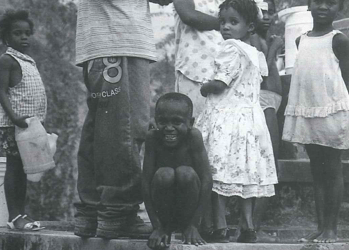Brazilian Public Health Systems
At Home and Abroad
The David Rockefeller Center for Latin American Studies, together with the Harvard School of Public Health, the Harvard Medical School and the Harvard Brazilian Organization, have organized the Fall 2000 lecture series, Brazilian Public Health Systems. The five part series features regional and area specialists who explore the problems and improvements in the systems that provide health care to Brazilians, both within and outside of Brazil. Brazilian and North American policymakers, researchers, practitioners and community organizers, will have the opportunity to discuss the impact new legislation, institutions and information tools and networks are having on the social conditions Brazilians face, at home and abroad.
Lecture series topics range from “Epidemiological profiles of malaria in the Western Amazon region” to methods-oriented panels such as a discussion by Harvard faculty members John David, Karen Peterson, Albert Ascherio, Ana Cristina Terra de Souza, Dieter Koch-Weser and Felton Earls on how to “Link Research to Practice.”
Reducing sickness, controlling endemic disease and parasites, improving health monitoring and the quality of life of Brazilians, are goals that have guided the actions of the Brazilian Ministry of Health for the last 45 years of its existence. However, over the last 12 years changes have taken place in the political, economic and demographic life of the country that have forced the government to significantly alter its strategies for achieving these goals. In 1988, the Constitution universalized access to public health services and in 1990, through the Lei Orgínica de Saúde and the implementation of the Sistema ínico de Saúde (SUS), the state sought to decentralize and democratize the management of public health care.
Although politically supportive of these federal mandates, many state and municipal level governments found themselves unprepared for the financial and administrative responsibilities that these expansive and very expensive initiatives required. Changes in the Brazilian public health system demanded, for its effective implementation and maintenance, improvements in its systems of information about and implementation of health care. These improvements include, among others, wider dissemination of information about legislative and policy changes, replication of successful state initiatives (public and private) and increased support for applied health research. Within applied health work, researchers and practitioners joined representatives of state level Secretariats, adopting progressive multi-disciplinary team research models that teach researchers, institutions, policymakers and practitioners how to more effectively link research with action.
While the Brazilian State sought to re-orient its goals and practices on the national, state and municipal level, growing numbers of Brazilians living in the U.S. were actively organizing themselves at the local and regional level. These new organizations and networks are reconfiguring the identity and raising the expectations of the growing North American Portuguese-speaking immigrant community. Throughout the Boston area, numerous private non-profit social service organizations have developed, offering programs that break down the language and barriers to health and social services, education and economic opportunities. Gradually, established institutions such as the Massachusetts Department of Public Health, Boston-area hospitals and clinics, and the Harvard School of Public Health and the Harvard Medical School, have begun to partner with these organizations, helping them to develop the information tools and networks necessary to provide services to this community.
Brazilian Public Health Systems brings leading policy-makers such as Ceará Secretary of Public Health, Dr. Anástacio de Queiroz Sousa, and international researchers such as Dr. Luiz Hildebrando Pereira da Silva, together with Harvard University researchers and representatives of the Boston-area Brazilian community. Over the past several years, DRCLAS has been expanding its support for the many Brazil programs at Harvard, which were formerly isolated in different faculties and departments. For the first time, Harvard students, visiting scholars, faculty, and community members have a forum to discover their mutual interests in Brazil.
The voices range from that of Dr. John David, who has long worked on Brazilian-based health problems in the School of Public Health to that of Harvard student Siripanth Nippita, who just discovered Brazil through a DRCLAS grant there, choosing a career in medicine as a result.
Fall 2000
Jennifer Burtner is the DRCLAS Brazil Program Coordinator. She plans and helps to administer the Center’s activities to strengthen research, public events, and outreach opportunities related to Brazil. As a social anthropologist, her research focuses on relationships among local project-affected-populations, non-governmental organizations and the state, particularly in conflict areas.
Related Articles
Latino Mental Health
What brings you in to see me today?” This is the typical question asked of new patients during a psychiatric evaluation in a Boston clinic. When asked of a Latino patient, however, the answer…
Health: the Hope of Haiti
At no time have I felt more vital than in serving at Partners In Health (PIH), and seldom more needed than in places like Haiti. In the Haitian people, as well as in every other country that PIH serves, we find an…
Whither Equity in Health?
A waiting room in a charity clinic in rural Haiti. It is a humid afternoon, and huge drops of warm rain are starting to fall. A young woman is watching as her ten-year-old son, Dominique, clutches…




